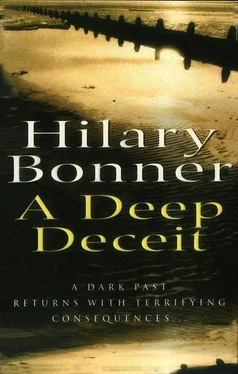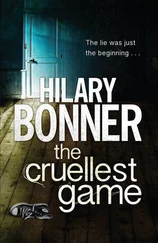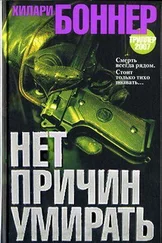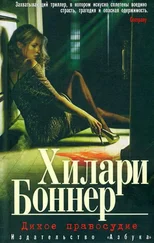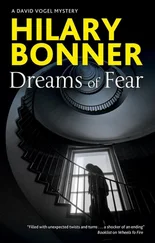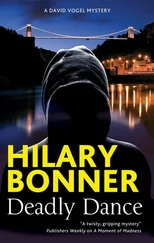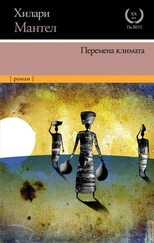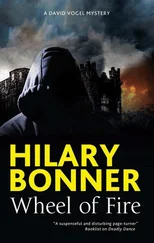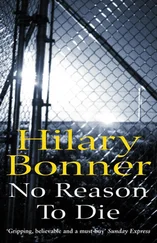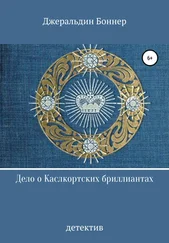The sun was shining for once, in spite of the time of year. Christmas was just a couple of days away, but the cares of a world, which seemed to me then to be such a grim, desolate place rested heavily on my shoulders. I was deeply unhappy and I didn’t know what to do about it.
Then suddenly he was by my side. Silently, as before. I looked up at him. The gentle eyes. The broad, ruddy face. The short blond hair that looked a bit like a scrubby crop of discoloured grass. I had so frequently seen that face inside my head since our one and only meeting. I thought I was behaving like a fool. For a few seconds neither of us spoke.
He crouched down in front of me. ‘I... I’m s-so gglad you’ve c-come,’ he said, his stammer the worst I had so far known it.
‘Yes.’ I studied him. ‘I wondered if you might be here...’ It wasn’t like me to give so much away.
‘I’ve b-been here every afternoon since we met,’ he replied. His eyes were earnest. He was still hesitant and yet obviously so determined. I found that mix in him quite captivating, and would continue to do so throughout all our years together.
‘I’ve been w-worried about you.’
It was such a strange thing to say to someone you barely know, yet I was quite certain that he was telling the truth. He wasn’t playing a game. Carl never played games with other people’s emotions and somehow I realised that even then.
Tentatively he stretched forward and took my hand in his. His touch was as gentle as his voice and his eyes. Something happened inside me. I half reached out for him, not believing what I was doing. He shuffled around, so that he could sit on the tree trunk next to me, then wrapped his free arm round me. I leaned into him and let the tears come as never before.
I cried my heart out in the middle of the Isabella Garden that sunny December afternoon as Carl held me. When I could cry no more he took his handkerchief from his pocket and handed it to me, just as he had the first time.
I half expected him to run. I think I would have done if I had been confronted by such a hysterical woman. ‘God, I’m sorry,’ I said eventually.
He grinned that crooked boyish grin. ‘If we’re going to be friends I think we should make a pact to stop apologising to each other.’
Friends? Even that still seemed barely possible.
‘You don’t know... you still don’t know anything...’ I stuttered.
‘I know that I want to h-help you, to stop you being so sad. I don’t know why, but I do.’
I felt his arm tighten around me.
‘I c-can, you know,’ he murmured. ‘I c-can stop you being so sad.’
The extraordinary thing was that even then, at the height of my misery, I did not really doubt him. I could not see how any other life would ever be possible, yet at last there was hope.
It does happen. People do meet and instantly fall in love. And sometimes they stay in love. That meeting was almost seven years before the threats started. And Carl and I had lived together, an inseparable pair, for more than six of those years – a modern miracle, perhaps. But for me Carl had a way of making miracles happen. He did indeed stop my sadness. And I never felt safer than when I lay in his arms.
All I needed to make my life perfect was for the nightmares to go away. And I had to believe that one day they would.
I had gone almost six months without a nightmare when it happened. That was the longest gap ever since Carl and I had arrived in St Ives. Maybe the moment had come, I had told myself, maybe there would be no more. I dared not think about it, but I did allow myself to hope.
I had even begun to make some kind of life for myself outside the tightly contained nest of my home with Carl. One of the most famous schools of modern artists had evolved in St Ives, painters and sculptors drawn by a light so pure that you could wake up thinking the sun was shining outside even on a rainy day. It was the home of Barbara Hepworth and Peter Lanyon, Patrick Heron, and Terry Frost, and a host of others whom I had only known of through reading about them and looking at their work in books. It was all of this which had attracted Carl to the town and for me it was as if all these wonderful artists leaped from the pages I had pored over so avidly and came alive. As I walked the streets I could feel these artistic giants walking with me. Their work was suddenly within my grasp. The Tate Gallery, a huge, white, angular building towering somewhat monstrously above the town, displays some of their paintings and sculptures with an almost clinical efficiency, but the pioneer spirit that inspired these men and women and brought them international fame is in the very air that you breathe in St Ives. At Barbara Hepworth’s house, you can see the piece of stone she was working on when she died so tragically, her tools alongside it just as she had left them. St Ives is full of magic.
I went regularly to the library just as I had done in London, to learn more about the town and the county that Carl and I had adopted. If St Ives is steeped in history, Cornwall is a mysterious county of legend and ghosts, martyrs and heroes. I was fascinated by it and, as usual, I immersed myself in the past as much as the present. It was in the library, a splendid old Victorian building on Fore Street, that, sitting engrossed at one end of a long table, I first began to read the story of John Payne, mayor of St Ives, who had been a leader of the last great Cornish uprising in 1548, when the Cornish had refused to accept the new Common Prayer Book in English. As many as 6000 Comishmen were believed to have died in battle and John Payne was one of those later executed.
I decided this was a man both Carl and I should know more about, and added the book to the selection I planned to take home with me that day.
‘He built his own gallows, you know,’ said the young assistant librarian in a soft Cornish voice, as I presented the John Payne book at the counter to be stamped out.
‘So I gather.’
‘Anyway. Good choice.’ She handed the book back to me along with the other three I had picked. ‘Everyone English should know about John Payne and the Prayer Book Rebellion. If they’d printed a Cornish Prayer Book, like they did a Welsh one, or if John Payne and his lads had won we might all still be speaking Cornish around here.’
I smiled at the allusion to Cornwall and England being separate countries. There was a twinkle in the girl’s eye, but I never quite knew whether the Cornish were joking or not when they made comments like that. Usually not, I suspected.
‘What makes you so sure I’m not Cornish anyway?’ I asked.
‘You wouldn’t need to read about John Payne at your age if you were,’ she replied with a big smile. She was, I realised, a strikingly pretty girl and had the kind of self-confidence that I could never even imagine aspiring to.
‘My name’s Mariette,’ she went on and held out her hand in a rather old-fashioned gesture. I took it and shook.
‘Suzanne,’ I said and not a lot more. I wasn’t used to making friends. I didn’t have any, really, and never had. Only Carl.
I had seen Mariette before, of course. She had been working at the library for about six months I thought, and she had checked out books for me before, but we had never embarked on any kind of conversation, however brief. I had noticed, though, that she always seemed bright and cheery, and did not appear to have a care in the world. I envied Mariette and all who were like her more than they could ever realise, and when she began to seek me out regularly I am sure that she had no idea how much it meant to me.
I remember vividly the first time we went for morning coffee together.
‘Do you like cappuccino?’ she had asked me.
Читать дальше
